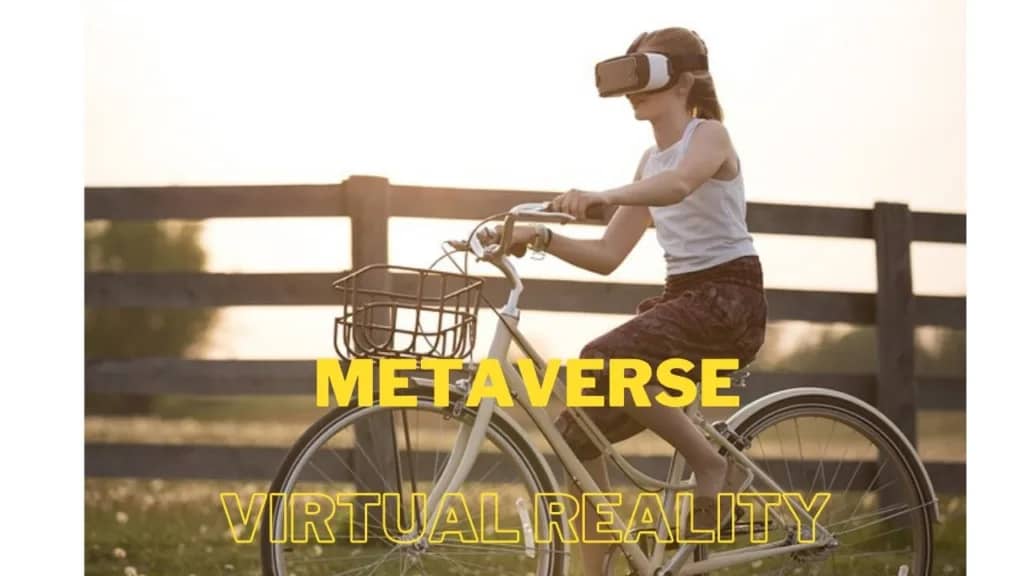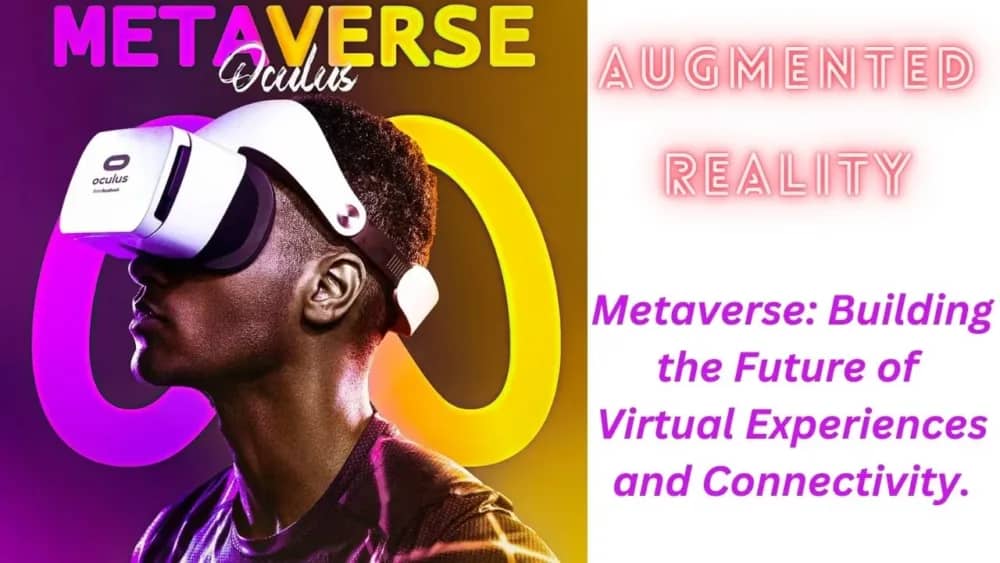In the realm of technological innovation, the concept of the metaverse has emerged as a tantalizing vision of the future, promising to reshape how we interact, connect, and experience the digital world. A metaverse is a collective virtual shared space, merging physical and digital realities, where users can engage in immersive experiences, social interactions, and economic activities. This article delves into the evolving landscape of the metaverse, exploring its potential impact on various aspects of our lives.
Defining the Metaverse
The metaverse goes beyond simple virtual reality experiences. It encompasses a network of interconnected virtual spaces, each offering unique environments and activities. These spaces can be accessed through a variety of devices, including virtual reality headsets, augmented reality glasses, and traditional screens. The metaverse isn’t confined to a single platform; rather, it’s an interconnected web of virtual worlds.
Virtual Experiences and Entertainment
One of the most exciting aspects of the metaverse is its potential to revolutionize entertainment and experiences. Imagine attending live concerts, art exhibitions, or sporting events from the comfort of your own home, with an unparalleled sense of presence and interaction. Companies are already investing in creating virtual worlds that cater to various interests, from gaming and education to socializing and exploration.
Social Interaction and Connectivity
The metaverse has the power to reshape how we connect with others. Traditional social media platforms have enabled communication across distances, but the metaverse takes it a step further by creating shared spaces where people can interact in a more immersive and natural manner. This can lead to a deeper sense of presence and connection, bridging gaps between cultures and geographical locations.
Economic Opportunities and Innovation
As the metaverse gains traction, it brings forth a new frontier of economic opportunities. Just as the internet transformed industries and created new business models, the metaverse is poised to do the same. Virtual real estate, digital goods and services, and even entire economies within virtual worlds are becoming a reality. Entrepreneurs and businesses can tap into this emerging market to create innovative products and services, while consumers can engage in novel economic activities.
Challenges and Considerations
While the potential of the metaverse is captivating, it’s not without challenges. Privacy and data security issues will need to be addressed to ensure user information is safeguarded. Additionally, questions of digital ownership, copyright, and governance within virtual spaces will require thoughtful solutions. As the metaverse evolves, striking a balance between innovation and ethical considerations will be crucial.
The metaverse represents a paradigm shift in how we interact with technology and each other. It holds the promise of creating new dimensions of human experience, spanning from entertainment and social interaction to economic endeavors. As developers, businesses, and policymakers collaborate to shape the metaverse, it’s imperative to prioritize inclusivity, accessibility, and ethics. The journey towards building the metaverse is an exciting one, and its potential to redefine our world is boundless. Whether it’s stepping into a virtual concert hall or collaborating on a project with someone halfway across the globe, the metaverse is laying the foundation for a more interconnected and immersive future.
The Evolution of the Metaverse
The concept of the metaverse isn’t entirely new. It draws inspiration from science fiction, where authors like Neal Stephenson and movies like “The Matrix” explored the idea of interconnected digital worlds. However, recent advancements in technology, including virtual reality, augmented reality, and high-speed internet, have brought the metaverse closer to reality than ever before.
Companies like Facebook (now Meta), Google, Microsoft, and others are investing heavily in metaverse development. They envision a seamless digital environment where users can seamlessly transition between the physical and virtual worlds. These efforts range from creating virtual reality social platforms to designing immersive educational experiences.
Education and Training in the Metaverse
The potential of the metaverse extends beyond entertainment and commerce. It holds immense promise for education and training. Imagine students being able to virtually travel to historical events, explore the depths of the ocean, or even interact with historical figures. Businesses can use the metaverse for training simulations, allowing employees to practice skills in a safe and controlled virtual environment.
Creating a Decentralized Metaverse
One notable aspect of the metaverse’s development is the debate over centralization versus decentralization. Some proponents advocate for a decentralized metaverse, where no single entity has control over the entire network. This approach aligns with the principles of blockchain technology, ensuring that users have more control over their data, assets, and experiences. A decentralized metaverse could potentially avoid the pitfalls of monopolistic control and data exploitation.
Barriers to Adoption
While the vision of the metaverse is exciting, several barriers stand in the way of its widespread adoption. The cost of entry, including the price of virtual reality hardware and high-speed internet, can be prohibitive for many individuals. Moreover, concerns about addiction, social isolation, and the blurring of digital and physical realities need to be carefully addressed.
Ethical and Societal Implications
The metaverse raises ethical and societal questions that require careful consideration. How will issues like cyberbullying, hate speech, and misinformation be handled in a virtual space? Ensuring that the metaverse promotes positive interactions and respects users’ rights will be crucial to its success.

Conclusion: Embracing the Metaverse
As technology continues to advance, the metaverse presents a new frontier of possibilities. From entertainment and education to commerce and social interaction, its potential applications are diverse and transformative. However, creating a metaverse that is inclusive, accessible, and ethical requires collaboration between tech companies, policymakers, and society at large.
The journey toward building the metaverse is a complex one, but the rewards could be profound. By harnessing the power of technology and human creativity, we have the chance to redefine how we experience the digital realm. As we navigate the challenges and opportunities that lie ahead, it’s essential to remain mindful of the values and principles that will guide us toward a metaverse that enhances our lives, rather than detracts from them. The metaverse isn’t just a vision of the future—it’s a call to reimagine our relationship with technology and each other.
The Path Forward: Navigating the Metaverse
As the metaverse gains momentum, several key steps must be taken to ensure its responsible and sustainable development:
- Interoperability: For the metaverse to truly flourish, it’s essential that different virtual worlds and platforms can seamlessly interact. Interoperability will enable users to move their avatars, assets, and data between various metaverse spaces, fostering a more cohesive and interconnected experience.
- Standardization: Establishing common standards and protocols will help create a more cohesive metaverse ecosystem. These standards can encompass everything from data privacy and security to user experience and virtual currency systems.
- Digital Ownership and Rights: Defining and protecting digital ownership rights within the metaverse is a critical task. Users should have clear rights over their virtual assets, creations, and data, while content creators should be able to retain control over their intellectual property.
- Inclusivity and Accessibility: The metaverse should be accessible to people of all abilities, backgrounds, and economic statuses. Designing platforms and experiences with inclusivity in mind ensures that the benefits of the metaverse can be enjoyed by a diverse global population.
- Privacy and Security: Ensuring user privacy and data security is paramount. Strict measures need to be in place to prevent unauthorized access, data breaches, and exploitation within the metaverse.
- Digital Well-being: As the metaverse encourages prolonged digital engagement, it’s crucial to address potential negative impacts on mental health and well-being. Balancing screen time, encouraging real-world interactions, and promoting healthy boundaries will be essential.
- Collaborative Governance: The development of the metaverse requires collaboration between tech companies, governments, regulators, and users. Transparent governance models should be established to address challenges, set standards, and ensure responsible growth.
Embracing a New Era
The concept of the metaverse has captured the collective imagination, offering a glimpse into a future where the boundaries between physical and digital realities blur. It presents a canvas for creativity, innovation, and connection, shaping how we work, play, learn, and interact. However, the road ahead is not without its complexities.
The metaverse’s success will hinge on our ability to balance innovation with ethics, inclusion with accessibility, and connectivity with digital well-being. It’s a journey that requires collaboration and foresight, embracing the potential while mitigating the risks. As technology continues to evolve, the metaverse serves as a powerful reminder that we are the architects of our digital future. By charting a course that values human experiences, respects individual rights, and fosters shared understanding, we have the opportunity to usher in a new era of connectivity—one that transcends physical limitations and redefines what it means to be part of a global society.
In embracing the metaverse, we embark on a journey of profound transformation—a journey that invites us to reimagine how we relate to technology, ourselves, and each other. It’s a journey filled with challenges, but also with immense promise—a promise of a world where virtual experiences enrich our reality and where connectivity knows no bounds.


